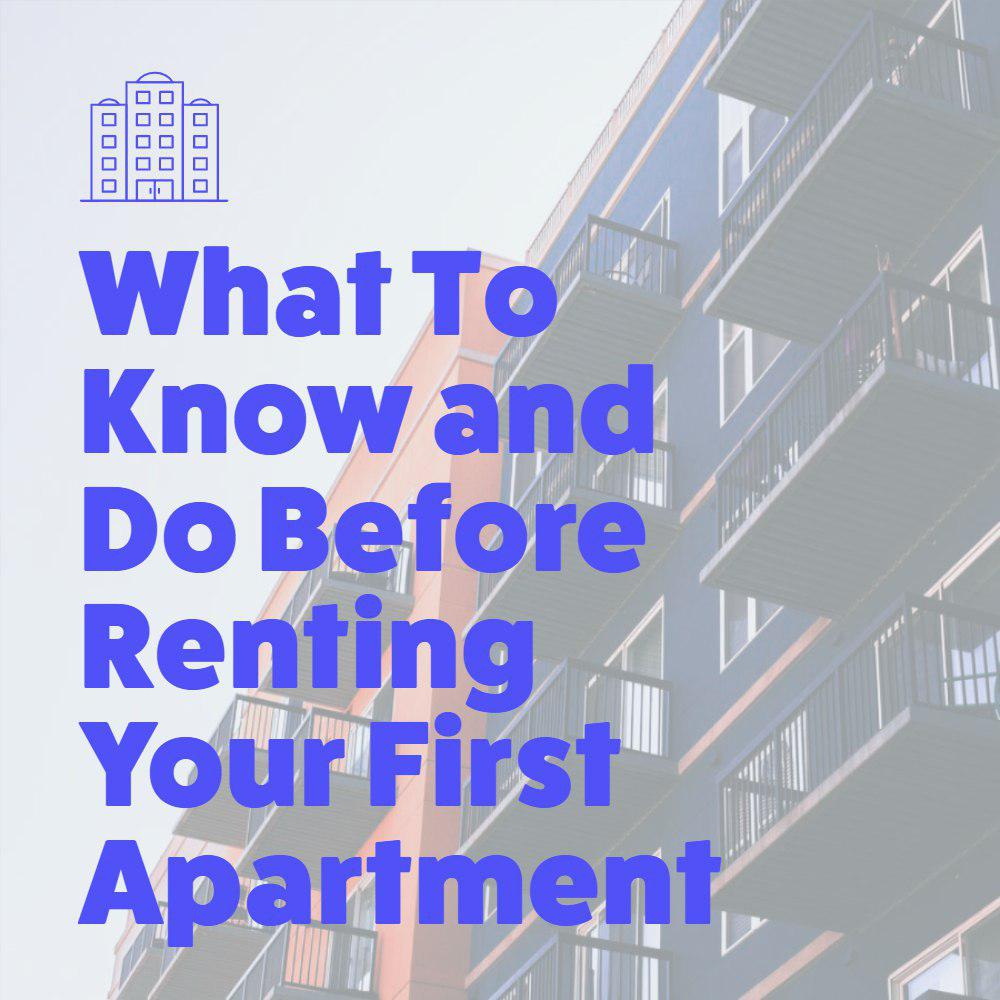
What To Know & Do Before Renting Your First Apartment
October 28, 2019 8:35 am 2 CommentsIf you’re getting ready to move into your first apartment, discover these simple moving hacks to make it all stress-free!

Renting an apartment?
For any first-time apartment renters, there are many things to consider. Renting an apartment can be stressful and figuring out what to know before renting an apartment might feel overwhelming. You may be asking yourself some of the following questions before moving in.
- How do I prepare to rent an apartment?
- What things do I need to know?
- Why should I rent an apartment?
- What items do I need to have?
The weeks leading up to move-in day can be extremely stressful. You’re pacing back, and forth wondering if you have all of the right documents, enough money saved, or if you made the right choice. It can cause a lot of worry and confusion. It’s important to walk yourself through things before officially signing your name on the lease.

There are many advantages to renting an apartment. Apartment living is continually growing and becoming more and more trendy. Multifamily apartment communities often have great amenities, spacious bedrooms, and fantastic locations. So if you’re apartment hunting right now, how do you find the right one? Here, we’ll cover what to know when looking for your first apartment.
APARTMENT RENTING 101
If you’re feeling confused, or anxious about renting an apartment, you’ve come to the right place. Let’s make this process as easy as possible for you. We’ve compiled our best apartment hunting tips, and questions to ask before renting. Here is what you should know, and do before renting your first apartment.
1. Location, Location, Location
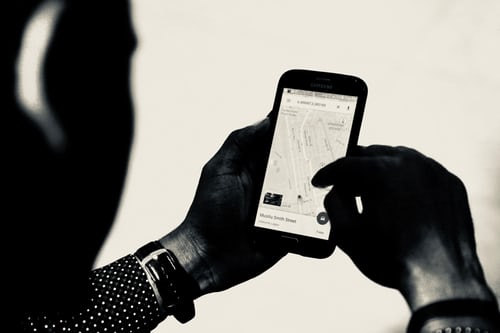
Hey there, future renter! Let’s talk about something important: researching the neighborhood before you sign that lease. Trust me, it can make a huge difference in your overall living experience. So, let’s dive in and find out what you need to know!
First things first, safety matters. Take some time to check out the neighborhood’s crime rate and safety record. Look for reliable sources that give you the lowdown on these things. Feeling safe and secure in your new neighborhood is super important, right?
Next up, think about convenience. How close are the grocery stores, healthcare facilities, and other services you rely on? Consider your transportation needs too. Are there buses or trains nearby? If you have a car, is parking going to be a hassle? These practical factors play a big role in how smoothly your daily life will go.
What about the fun stuff? Check out the local attractions and amenities. Are there parks or walking trails nearby? Any cool restaurants, cafes, or entertainment venues? Think about the lifestyle you have and the one you want to create for yourself. You want to make sure the neighborhood offers activities and opportunities that align with your interests.
If you love to hike or bike, make sure there are trails or bike paths near where you’ll be living. If you enjoy going out on the town and a vibrant nightlife, choose an apartment close to downtown. Think about your needs. Nothing is worse than finding a perfect apartment and then realizing it is just too far from your favorite gym, activities you enjoy with friends, or that restaurant you and your partner love, and then being stuck in a year long lease in a place you don’t love.
Intently thinking about where you want to live is one of the most crucial parts of choosing an apartment rental. It seems pretty simple, but there are definitely a few extra things to consider. To sum it up, ask yourself:
- Is the apartment community located by attractions, entertainment, and activities that you enjoy?
- Is it near public transportation or major roads for an easier commute?
- What does the local area, and neighborhood consist of?
- What jobs are located in the area?
- Are there outdoor amenities nearby?
All of these questions will help you determine if the multifamily apartment community you’re looking into is the right fit for you. Remember, finding an apartment isn’t just about the four walls you’ll be living in. It’s about finding a community that feels like home. So, do your research, explore the neighborhood, and make sure it checks all the boxes for your lifestyle and preferences. Trust me, it’s worth the effort to find the perfect spot that truly fits your needs.
2. Amenities

One of the most amazing parts of modern apartment living is the luxurious communities that are filled with excellent amenities. Amenities can really change the way an apartment community functions, and your entire living situation. We suggest making a list of the apartment amenities that are essential for you and sticking to them. Find an apartment that caters to the amenities that you want. Here are some things you may want to consider.
- What amenities are deal-breakers for me?
- Does the apartment have free parking?
- Is there a swimming pool, fitness center, and other clubhouse amenities?
- Do the property managers handle all repairs?
Discuss the amenities with the property managers, to make sure you’re on the same page.
3. Lease Term and Understanding Lease Agreements When You Rent
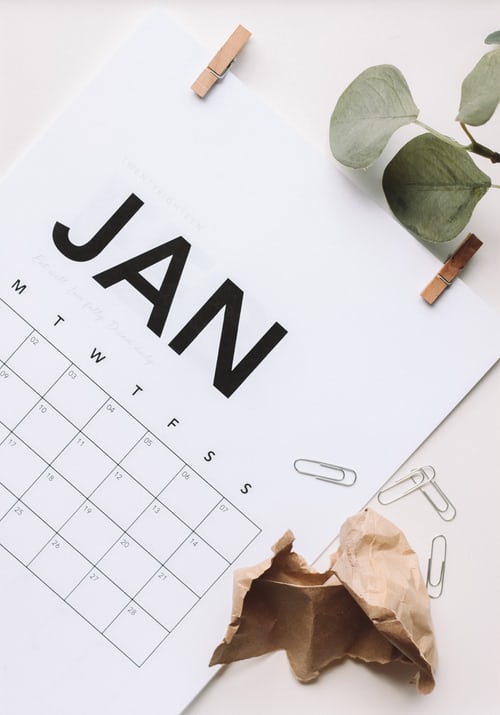
Lease agreements might seem a bit overwhelming, but they’re pretty important when you’re renting your first apartment. Basically, it’s a contract between you and your landlord that lays out all the important stuff about your tenancy and it’s absolutely one of the most important things to know about renting an apartment.
First things first, check the lease term. That’s just how long you’ll be renting the place. It could be a year or even month-to-month. Knowing the length helps you plan ahead.
Apartment rentals can really vary in how long your specific lease term is. It is important to make sure that you’re clear on how long you’re wanting to stay somewhere. Lease prices can change as apartment communities shift. Take the time to check the correct information. Research commonly used lease terms. Design your lease length.
Now, onto the money stuff. Look for details about the rent amount, when it’s due, and any extra fees. Make sure you know how and when to pay, so you don’t get hit with late fees. Don’t forget about the security deposit and any pet or utility fees mentioned.
Take a look at your responsibilities as a tenant and what the landlord is responsible for. Who’s in charge of fixing things? Can you make changes to the place? Are there any rules about noise or guests? Knowing these things helps you avoid misunderstandings.
Last but not least, check the renewal and termination info. Some leases automatically renew, while others need a new agreement. Just be aware of what you need to do if you want to stay or leave.
If anything in the lease agreement confuses you, don’t be afraid to ask your landlord. It’s better to be clear about everything before you sign. Understanding the lease agreement is a key part of having a smooth renting experience.
4. Budgeting
Hey, let’s talk budgeting for your first apartment! It’s important to get a handle on your finances, so here are some tips to help you out:
- Keep track of your expenses: Start by knowing how much money is coming in and where it’s going out. Categorize your spending into things you absolutely need (like rent, utilities, and groceries) and things you want (like eating out and entertainment). This way, you can see where you can cut back and save.
- Make a realistic budget: Create a budget that covers all your essential expenses while still leaving room for savings and fun stuff. Be honest with yourself about what you can afford and set achievable goals. Oh, and don’t forget to account for those occasional expenses like car maintenance or insurance.
- Save on utilities: Look for ways to save on your utility bills. Use energy-efficient appliances, switch to LED bulbs, and be mindful of your electricity and water usage. Unplugging devices and adjusting the thermostat can also make a difference. It’s the little changes that add up and help you save some cash.
- Be smart with groceries: Plan your grocery shopping by making a list and sticking to it. Think about your meals in advance and keep an eye out for sales or discounts. Cooking at home and bringing your lunch to work can save you a ton of money and keep you eating healthier too.
- Have an emergency fund: Life happens, so it’s good to have some money set aside for unexpected expenses. Try to save up at least three to six months’ worth of living expenses in your savings account. Start small and make it a habit to regularly put money into your emergency fund.
With these budgeting tips, you’ll be in control of your finances in your first apartment. Remember, it’s all about finding the right balance between your needs, wants, and financial goals.
5. Up Front & Long Term Costs

Navigating through rental costs is extremely important. You should ask the property managers what is included in the rent. What are the additional costs? Distinguish between up-front, and long-term costs. Remember that most apartments run a credit check (we’ll cover that in a minute). After a credit check, they’ll determine if you’re eligible to rent.
Review and understand the upfront and long-term costs of renting an apartment, and how the money is collected on a regular basis. Check to see if utilities are included and if there are any additional fees for things like parking, waste removal, pets, late payments, etc. Research apps that can help you stay organized, and on top of payments so that unnecessary fees can be avoided.
6. Pet Policy (and Possible Fees)

Your pet is everything to you. Find an apartment that accommodates your furry friend. Most pet policies cost extra and can add additional fees to your monthly rent. Review the pet policy regularly. This will prevent any surprise of additional costs. Reach out to your property manager if you have any questions.
7. The Importance of Your Credit Score when Renting Your First Apartment
When it comes to renting your first apartment, there’s something important you should know: your credit score matters. Yep, landlords and property management companies often use your credit history as a way to figure out if you’re financially responsible and reliable. So, before you start apartment hunting, it’s a smart move to check your credit score.
Don’t worry, checking your credit score is pretty easy. You can actually get a free credit report from the major credit bureaus. This report gives you a chance to review your credit history and make sure everything’s accurate. It’s a good idea to do this ahead of time so you can fix any mistakes and work on improving your credit if needed.
Now, let’s talk about those credit requirements that landlords have. Having a good credit score can give you a major advantage when applying for an apartment. It shows that you’re trustworthy with money. But if your credit score isn’t so great, don’t panic. Some landlords might ask for extra stuff, like a co-signer or a larger security deposit, to give them more confidence in renting to you. Just don’t let bad credit stop you.
If your credit score needs a boost, there are steps you can take. Start by paying your bills on time and keeping those credit card balances in check. These little actions show that you’re responsible with your finances, and over time, they can improve your credit score. And hey, don’t forget to look at your credit report for any errors that might be dragging down your score. Fixing those mistakes can make a big difference.
Now, what if you don’t have much of a credit history yet? No worries, it happens. There are other ways to prove you’re financially responsible. You can provide proof of your income, get references from previous landlords or employers, or even offer a larger security deposit. These alternatives can help ease concerns about your limited credit history.
Remember, building good credit takes time and effort, but it’s worth it. Not only will it increase your chances of getting that dream apartment, but it’ll also set you up for a better financial future.
8. Renter’s Insurance
Renter’s insurance is a must-have for your first apartment! It’s like a safety net that protects your stuff and keeps you covered if things go wrong. Here’s why it’s important:
First off, renter’s insurance covers your belongings. So, if anything gets stolen or damaged by fire or other covered incidents, the insurance steps in to help you replace or repair your stuff. From your furniture and electronics to your favorite outfits and precious items, it’s all protected.
Another cool thing about renter’s insurance is that it includes liability coverage. If someone gets hurt in your place or you accidentally damage someone else’s property, the insurance has your back. It helps cover medical bills or legal fees if you’re held responsible. Talk about peace of mind!
Oh, and here’s an extra perk: If something happens and your apartment becomes uninhabitable, renter’s insurance can also help with additional living expenses. So, if you need a temporary place to crash or money for essentials, it’s there for you.
Renter’s insurance is usually affordable, and it’s totally worth it for the protection and peace of mind it brings. Just make sure to check the coverage limits, deductibles, and any special options available. Also, it’s a good idea to take some photos or videos of your belongings, so you’re ready if you ever need to make a claim.
Remember, your landlord’s insurance won’t cover your personal stuff or liability, so getting your own renter’s insurance is a smart move. It’s like having a friendly guardian for your belongings, keeping them safe and sound.
9. Communicate with Landlords and Property Managers
When it comes to communicating with your landlord or property manager, a friendly yet professional approach goes a long way in establishing a positive relationship. Here are some tips to keep in mind:
First, prioritize prompt and polite communication. Respond to messages and inquiries in a timely manner, and maintain a respectful tone in your conversations. Clear and timely communication helps address any questions, concerns, or maintenance issues effectively.
Secondly, document important discussions or requests. Follow up verbal conversations with a summary email to ensure that both parties have a record of the key points discussed. This helps avoid misunderstandings and serves as a reference if needed.
Make sure to familiarize yourself with the terms of your lease agreement and follow them diligently. If you have any questions or need clarification, don’t hesitate to reach out for guidance. Understanding your rights and responsibilities is essential for a smooth landlord-tenant relationship.
Clarify your rental application and every application fee with your new landlord. You don’t want to run into potential challenges or obstacles that could’ve been avoided if you had simply asked questions. Talk to them about your concerns with your limited credit history or see if you can negotiate some of the lease terms if they don’t make sense.
Remember, they do want to rent their units, but be respectful. Some apartments may not be a good fit. It’s okay to move on if it won’t work, but you may want to try again at that property in the future, so maintain a good relationship with the landlord or property manager.
If you encounter any maintenance issues, report them promptly to your landlord or property manager. Provide specific details about the problem to facilitate timely repairs and ensure a safe and comfortable living environment.
Lastly, keep a record of all communications. This includes emails, repair requests, or any other important correspondence. Having a documented history can be useful in case of future disputes or misunderstandings.
By maintaining a friendly and professional approach in your communication, you can foster a positive relationship with your landlord or property manager, leading to a more enjoyable renting experience.
9. Prepare for Paperwork

The apartment renting process can consist of a lot of paperwork, or well, “digital work”. There may be multiple documents sent back, and forth. It is important to be prepared with the right documents, to make moving as smooth as possible. You may need copies of pay stubs, bank statements, renters insurance, and additional paperwork. Review a list of the expected paperwork, or documentation needed.
10. Decorating Your Rental
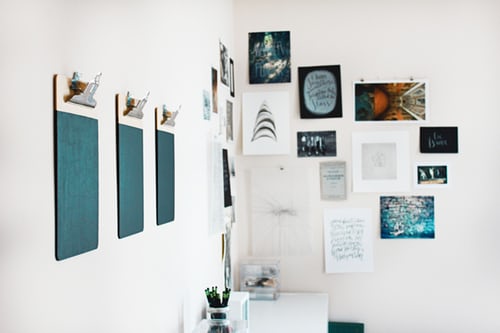
Are you allowed to hang up your favorite tapestry, and perhaps create a gallery wall? Make sure you understand the apartment’s policy on decorating. Decorations that cause any damage, can potentially lead to greater long-term costs. Get in touch with your property manager about decorating rules. Check out our Pinterest for decorating ideas.
11. Apartment Checklist
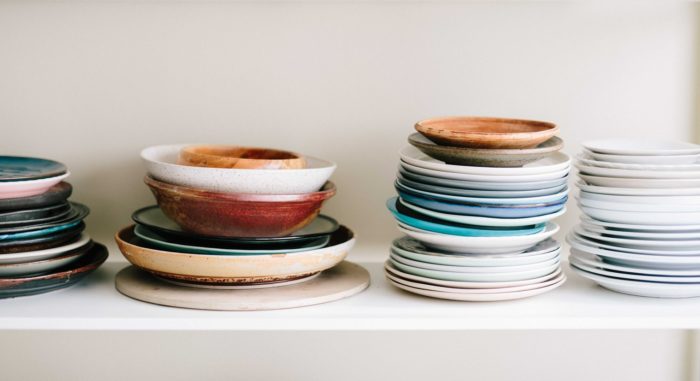
Make sure you have everything you need before moving day. You don’t need a brand new couch. You don’t need an expensive record player. Gather the things you cannot live without.
- Kitchenware
- Bathroom Supplies (Towels, Shower Curtain, Bath Mat, Toiletries)
- Bedroom Necessities (Bed, Mattress, Etc)
- First Aid Kit
Take care of the apartment necessities before you get there. Put together an apartment checklist and be as thorough as you need to be to feel comfortable at home.
12. Plan a Moving Day
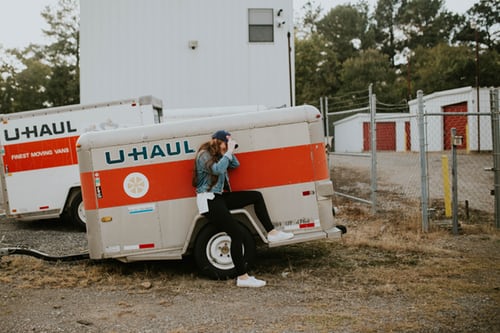
Congratulations!
Now, you have found your apartment, and it’s getting closer to moving day. Next, you’re going to need to plan out how you will move your furniture and belongings. It’s important to consider how you will transport large items.
Find others that can assist you in taking pieces apart, and putting them back together. You need people to assist you in carrying heavy things. Moving definitely cannot be done on your own. Reach out, and plan a day to get all moved in.
13. Make Your New Place Feel Like Home

There are many things that you can do to make your new apartment feel like a home. Hang art on the walls, light your favorite candles, display pictures of you, and your favorite people. Buy some fresh cut flowers or your favorite plants.
You can incorporate cozy furniture and blankets, and truly make this a place that you love to spend time in. We can’t wait to see you turn your apartment into a home.
So you’re still looking for an apartment, and haven’t found one you love?
Check out apartment listings through Market Apartments.
HAPPY APARTMENT HUNTING!
For more apartments, and apartment marketing resources check out our website.
Categorised in: For Renters
This post was written by Isabella Housel
Isabella Housel is a passionate and versatile professional writer with a deep love for words and a commitment to crafting compelling content that engages, informs, and inspires. With many years of experience in the industry, she has honed her skills across various genres, from creative storytelling to informative articles and technical documentation.
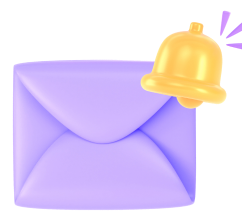





2 Comments
The most helpful part of your article was definitely the one that had the item checklist that will help you when you move into your first apartment. Being prepared for the first few days after moving is important to me since I want to seamlessly transition into my new space and be able to continue remote work immediately. This list will help me do that, so I’ll keep it in mind when I find an apartment listing that suits my criteria.
I like how you mentioned that there are many things that can be done to make an apartment feel like home. If you are living alone, it seems like it would be really important to make your apartment as comfortable as possible. You would want a comfortable environment so that you can feel safe and have a place to help you de-stress from daily responsibilities.